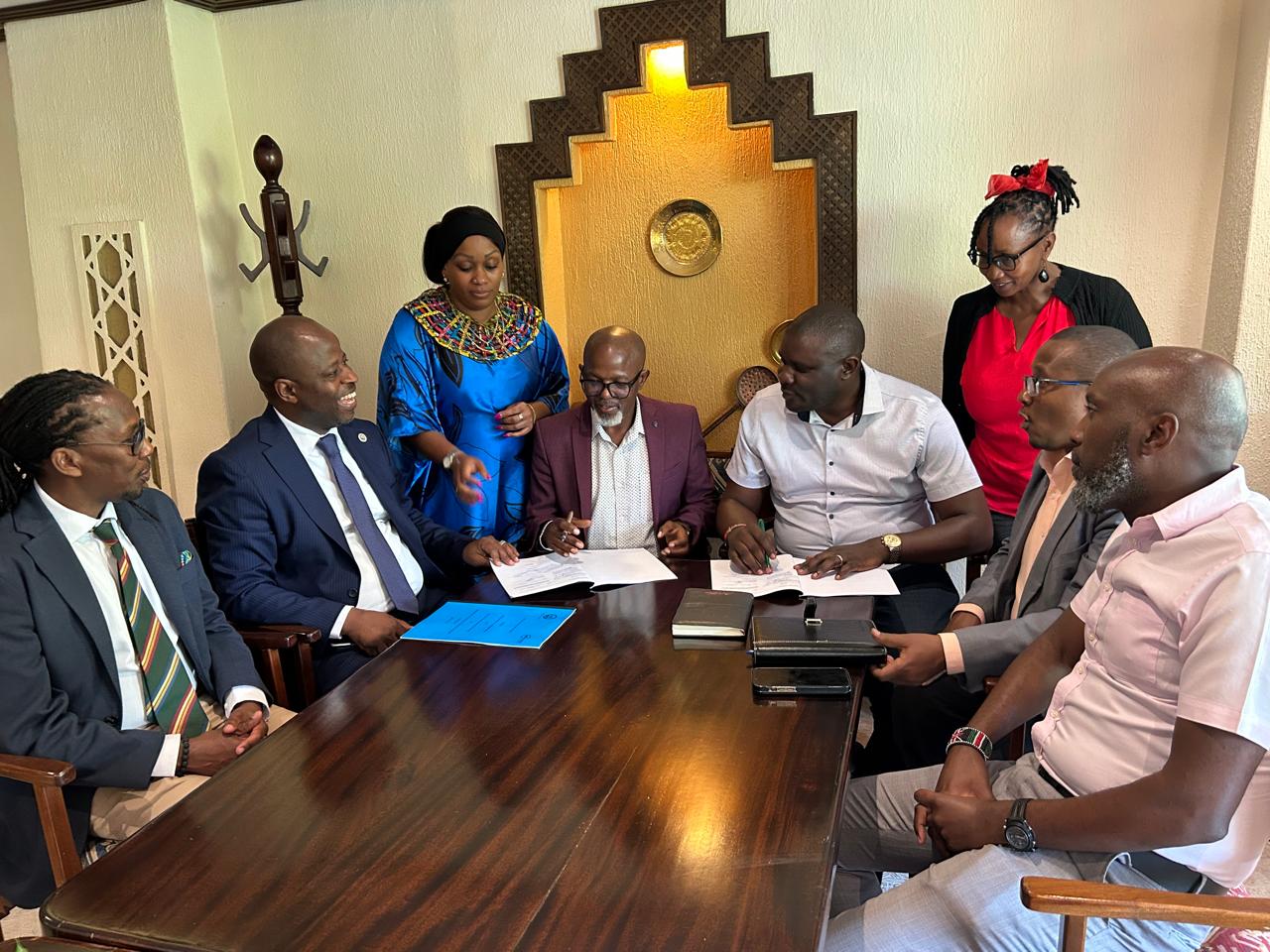
On March 6, 2025, SDI Kenya and the Nairobi City County Government (NCCG) formalized a pivotal partnership by signing a Memorandum of Understanding (MoU). This collaboration aims to promote refugee integration and enhance the welfare of vulnerable host communities in Nairobi.
Background
Nairobi has approximately 96,348 registered refugees and asylum seekers. It also has thousands more who are either registered to be in camps, or are entirely unregistered. It also has a sizable number of economic immigrants from the East African community countries. All these populations are locked out of public services that are available to Kenyan citizens, such as health care, education, business licensing and so on. On the other hand, for local host communities these displaced populations represent competition for already stretched public services and income opportunities. A common, but entirely false perception is that displaced populations receive income support from UNHCR. These assumptions often create challenges for refugees, leading to hostility from host communities and security enforcement bodies.
Nairobi County Refugee Integration and Community Building Strategy (NCRIS)
In response to these challenges, SDI Kenya collaborated with the NCCG and other partners to develop the Nairobi County Refugee Integration and Community Building Strategy (NCRIS). Completed in November 2024, this strategy is the first of its kind in Africa, aiming to foster a sense of belonging, unlock economic opportunities, and build bridges of understanding between refugees and host communities.
Key Objectives of NCRIS
Implementation and Support
The implementation of NCRIS is supported by the International Rescue Committee (IRC). The Nairobi City County Government will oversee the execution of the strategy, with SDI Kenya acting as a subgrantee responsible for monitoring progress and ensuring resource accountability. SDI Kenya will also play a pivotal role in community building, working closely with refugee communities and partners such as the Refugee Consortium of Kenya among others.
Stakeholder Engagement
The success of NCRIS hinges on the active participation of various stakeholders, including international organizations, local businesses, civil society, and, most importantly , the refugees themselves. This collaborative approach ensures that the strategy addresses the multifaceted challenges faced by refugees and promotes a harmonious coexistence with host communities.
Conclusion
The MoU between SDI Kenya and the Nairobi City County Government marks a significant milestone in addressing refugee integration in urban settings. Through the comprehensive framework provided by NCRIS, there is a collective commitment to creating an inclusive Nairobi where every individual, regardless of origin, is embraced, and diversity is cherished.
This partnership serves as a testament to shared humanity and the belief that, together, a brighter future for all can be built.

In her interview, Nicera Wanjiru shares the impactful stories of two young residents from Kibera informal settlement, Vivian Vushele and Charles Gicura, as they reflect on how the Covid-19 pandemic has transformed their lives. Both faced significant challenges: Vivian experienced her parents' separation, while Charles had to pivot from a career in hospitality due to the industry's collapse. Their narratives highlight the emotional and economic upheaval that many young people endured during this unprecedented time.

In this piece, Jacob Omondi, Jackline Waithaka, and Jane Wairutu discuss the profound impact of COVID-19 on youth in informal settlements like Mathare, Nairobi. The pandemic has exacerbated job losses and financial instability, particularly affecting those in the informal economic sector, where many young people rely on daily earnings from their businesses.

In Loitoktok, Kajiado County, a women’s group is transforming lives through resilience and innovation. With support from the Next Level Grant Facility under Voices for Just Climate Action, they’ve expanded urban farming and beekeeping, proving the power of collective action in climate adaptation and economic empowerment.
Join our newsletter to stay up to date on news and projects.
By subscribing you agree to our privacy policy and provide consent to receive updates from our organization.